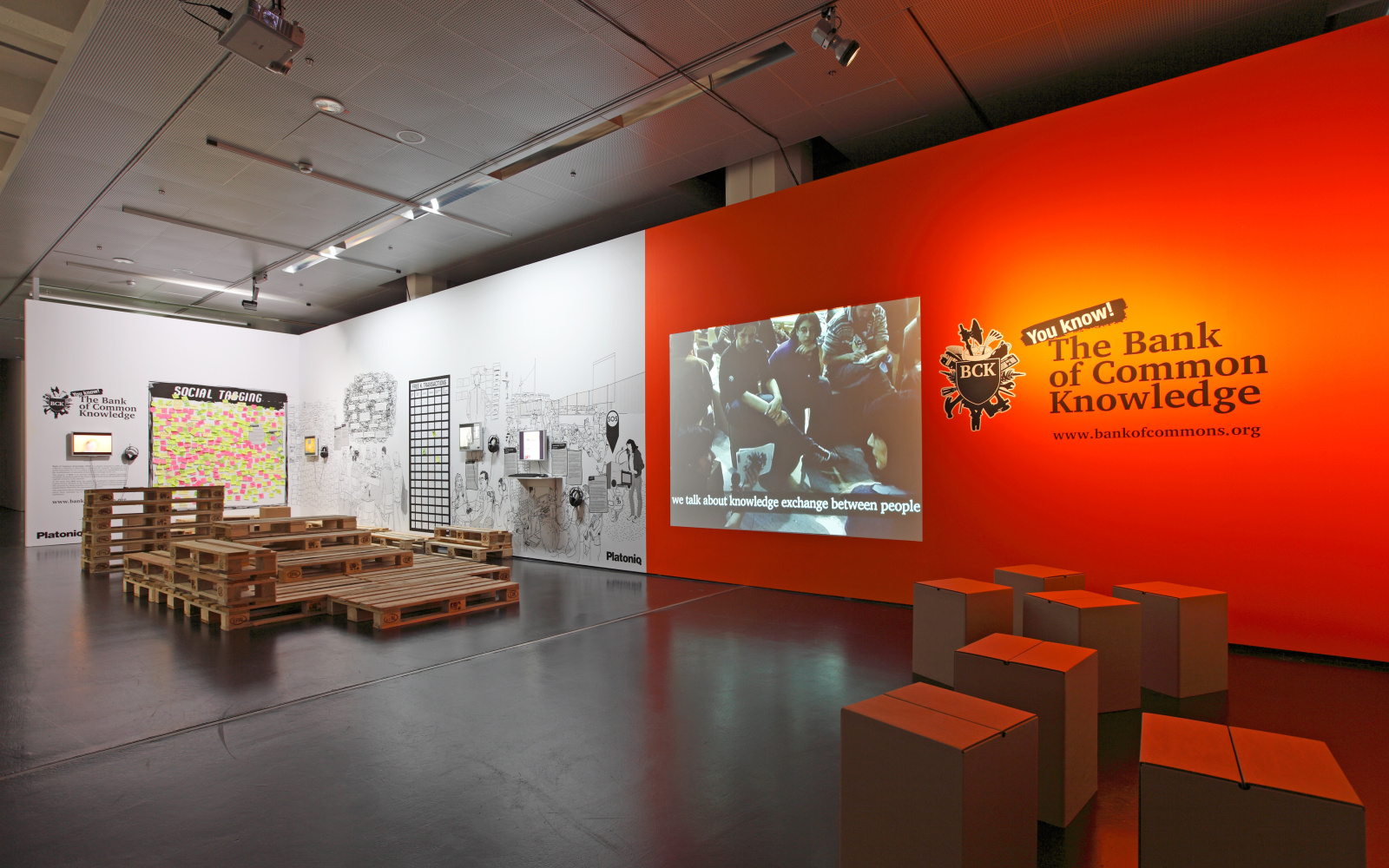- Exhibition
Banquete. Nodes and Networks
Cyber Culture in Spain
Sat, March 14 – Sun, June 28, 2009
- Location
- ZKM | Museum of Contemporary Art
The exhibition »banquet_nodes and networks« guides us from neural micro worlds to global dynamics of digital networking. Showing current positions in Spanish media art that deal with networked systems, it thus meaningfully complements the previous exhibition »The Discreet Charm of Technology«, that was shown in the ZKM until February 15th.
»banquet_nodes and networks«
The works in the exhibition visualize connections of biological, social, and cultural networks, allowing visitors to participate and experience them. At issue is the perception of life as a networked system—from water molecule through to the global ecological system. It is about the examination of human existence as part of this complex, self-organizing and self-maintaining web; as interface between the micro and macroscopic levels, between life's endosmotic and exosmotic phenomena as well as the interface between the biological, technical, and socio-cultural conditions and developments of human existence. The relationships and tensions between locally coherent social forms, on the one hand, and global social structures on the other, are subjected to critical examination and reformulation. Based on more than thirty digital and interactive projects, the complexity of the network structure as a common matrix can be experienced. In the course of this, new cross links arise that lead from Santiago Ramón y Cajal's late nineteenth century neuronal net theory to Manuel Castell's current net-based theory of information society.
Knowledge as networked system
After a century in which knowledge has become increasingly specialized, the knowledge about reality has been broken down into ever more individual parts. We are now presented with the task of developing new thought models, methods, and tools to reconnect these fragmented elements of experience and knowledge and to do justice to their complexity. Fact is, the majority of today's political, economic, social, and cultural problems can hardly be solved in isolation. In many areas, the demand for open and thus flexible systems capable of development is again being raised. Cross connections and directed openings of previously hermetically sealed areas of experience and knowledge occurring in the course of this bring new knowledge about the structure and function of networked systems.
From neuronal to digital networking
In Spanish science, the physician and neuro-anatomist Santiago Ramón y Cajal first pre-conceived and visualized the theory of networks at the end of the nineteenth century. His neuron theory shows that neuronal networks form our brains’ and nervous systems’ information architecture. Cajal was the first to recognize that nerve cells function in the brain as independent, elementary signal units. In addition, the neuronal network as a whole is a structure capable of developing and changing, in which not the cells themselves, but the respective connection between the cells is decisive in the kind of perception, thought, or behavior. The idea of a decentralized and dispersed information system has thereby been an important aspect of research since the birth of modern neurosciences. In the 1990s, also at issue in the information society that Manuel Castell examines is the phenomenon of net-based information architecture. As a sociologist, however, he no longer positions this informational architecture in the brain, but rather, in networked urban areas and the global Internet structure, which currently define economic productivity, cultural hegemony, and political-military power. Thinking and acting thereby found a new field of action within the communication-technology development in which the brain’s information architecture is newly articulated in global communication networks and urban living spaces.
External Event Website
Imprint
- Curator
